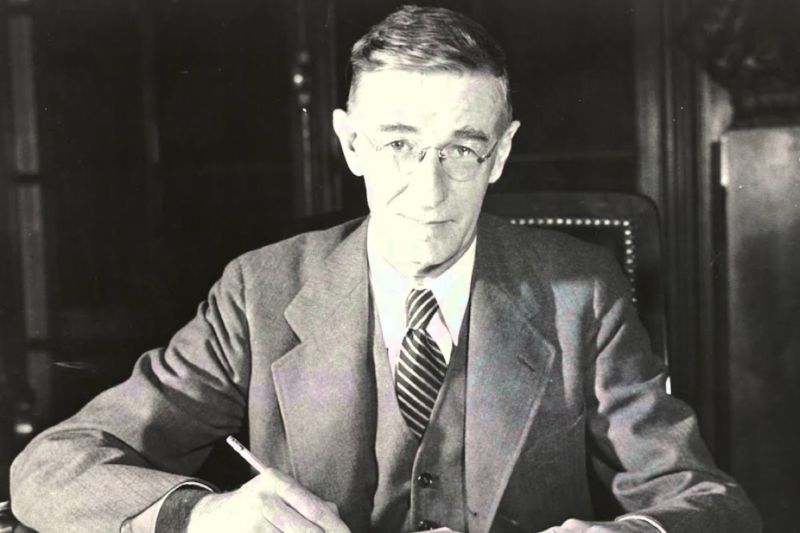
Enlarge / Vannevar Bush seated at his desk, circa 1940-1944. During President Franklin Roosevelt's administration, Bush built a national science policy based on a new structure for innovating quickly and effectively. (credit: Wikimedia Commons/Public domain)
Few people these days are familiar with the name Vannevar Bush, an engineer who played a significant role in fostering the developing of key technologies that helped the Allied Forces win World War II. He also spearheaded a highly influential federal report, Science: The Endless Frontier. Presented to President Theodore Roosevelt in 1945, the report famously argued for federal funding of basic research in science, calling it "the pacemaker of technological progress." It shaped national science policy in the US for decades, and helped usher in an unprecedented explosion of economy-boosting scientific and technological innovation. (On the downside, Bush took a very dim view of the humanities—including science history—and social sciences.)
Physicist Safi Bahcall first learned about Vannevar Bush when he joined the President's Council of Advisers on Science Technology in 2011, charged with producing a version of that 1945 report for the 21st century. The experience dovetailed nicely with his longstanding interest in the arc of human thought over the course of history, and his background as both a physicist and a biotech entrepreneur. (Bahcall comes by his physics bona fides naturally: his father is the late John Bahcall, best known for helping to solve the solar neutrino problem.) The result: an intriguing new theory about fostering innovation, based on the physics of phase transitions, that led to his first popular science book: Loonshots: How To Nurture the Crazy Ideas that Win Wars, Cure Diseases, and Transform Industries.
"I think business people are really tired of the thousands of more or less identical business books produced every year, saying more of less the same stuff," Bahcall told Ars about his fresh approach to the topic. "And most economists have never seen the inside of a real company, so their models have no connection to reality. I happen to be in the middle of a very weird Venn Diagram of someone with condensed matter physics experience, someone with business experience, someone who likes to tell stories, and likes to think about history."
No comments:
Post a Comment